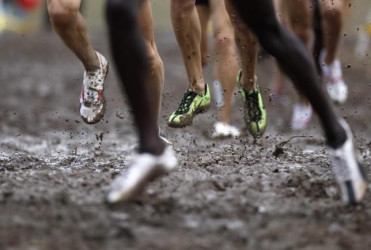KUALA LUMPUR, (Reuters) – Endurance runners suspected of doping have been winning a third of Olympic and world championship medals, two news organisations said yesterday, after a leak of thousands of blood test results from 2001-2012 threw global athletics into chaos.
Britain’s Sunday Times newspaper and Germany’s ARD/WDR broadcaster said they had obtained the secret data from the vaults of the global athletics governing body, the IAAF, supplied by a whistleblower disgusted by the extent of doping.

The news organisations showed the data to two experts, who concluded distance running was in the same state as cycling had been when Lance Armstrong won the seven Tour de France victories of which he has since been stripped.
“Never have I seen such an alarmingly abnormal set of blood values,” the Sunday Times quoted Australian doping expert Robin Parisotto, one of the two scientists, as saying. “So many athletes appear to have doped with impunity, and it is damning that the IAAF appears to have sat idly by and let this happen,” said Parisotto, an inventor of the test used to detect the blood doping agent EPO.
The latest allegations could cast a shadow over the biennial world athletics championships in Beijing beginning Aug. 22.
The IAAF did not immediately address the substance of the reports but said it was preparing a response. It noted the reports were based on confidential information obtained without permission.
The World Anti-Doping Agency, a separate body set up in 1999 to coordinate doping investigations across global sport, said it was “very disturbed”.
The allegations “will, once again, shake the foundations of clean athletes worldwide,” WADA President Craig Reedie said at a meeting of the International Olympic Committee in Kuala Lumpur. “These are wild allegations, wide allegations and we will check them out and have that done with the commission as quickly as possible,” Reedie said. The International Olympic Committee expressed confidence WADA would get to the bottom of the case.
POWER STRUGGLE
The allegations concern techniques to improve the ability of blood to carry oxygen, which can give an advantage in endurance events like cycling or running over medium and long distances.
The Sunday Times and ARD said they were given access to the results of over 12,000 tests of more than 5,000 athletes taken between 2001 and 2012.
Parisotto and another scientist, Michael Ashendon, concluded that more than 800 athletes had recorded one or more “abnormal” results, defined as a result that had less than one chance in 100 of being natural.
Such athletes accounted for 146 medals at top events, including 55 golds, the Sunday Times said. Russia accounted for by far the most, with 415 abnormal tests, followed distantly by Ukraine, Morocco, Spain, Kenya, Turkey and others.
“A remarkable 80 percent of Russia’s medal winners had recorded suspicious scores at some point in their careers,” the Sunday Times said.
Russia’s sports minister, Vitaly Mutko, said the scandal had “nothing to do with Russia”, but reflected a “battle for power” ahead of an upcoming election to lead the IAAF: “Russian athletes are being checked for doping the same way as athletes from other countries are.”
The reports also drew attention to Kenya, a power in distance running. The Sunday Times said Kenyans accounted for 18 of the medals won by athletes with suspicious results. Athletics Kenya called ARD’s documentary “an attempt to smear our runners with unwarranted suspicion as they prepare to undertake their duty for their country” at the world championships.




